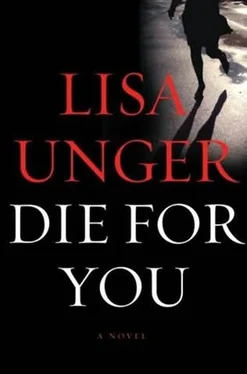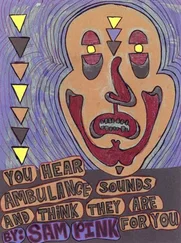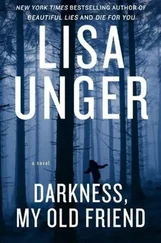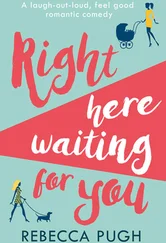She shook her head slowly. “It’s terrible. I’m sorry. But I don’t know what I can do.”
“Do you know anything about the man who makes these donations?”
“I know of the donations, of course,” she said. “To us, this is a lot of money, forty thousand U.S. dollars a year. The donations come anonymously. The rumor is that the man who makes them lived out his boyhood here, applied for scholarships to the U.S., and left to go to school there when he turned eighteen. That now he is very rich and successful and wants to help other orphans like himself. But this is just a rumor.”
Outside the window, there was a wide expanse of flat land. In the distance, a large black bird flew a low wide circle in the air. I felt myself coming to a dead end. Yes, the money had come here. But so what?
“My husband’s real name is Kristof Ragan. He has a brother named Ivan. Do you have old records?”
She was already shaking her head before I finished speaking. “Since the fall of communism, all new records are being computerized. Old records were incomplete, nonexistent, or destroyed. In recent years there’s been a lot of purging.”
“But there must be something. Maybe someone who has been here for many years.”
“By purging, I don’t just mean old records. This is a privately run orphanage now but once orphanages like this were run by the state. The practices were archaic, the officials corrupt to an extreme. We’ve had to distance ourselves from those old ways to better serve the children in our care.”
She must have seen the despair on my face, offered a sad smile. What had I hoped? That someone here would know him, that they’d have a current address? That they’d open up old records for me and I’d find something there? I don’t know. I realized how pointless this trip had been. My husband was gone. His history was lost. Had he grown up in a place like this, in a communist orphanage, afraid and alone? Had anything he’d told me about himself been true? I had to face the fact that I might never know.
“I’m sorry,” the young woman said. “I don’t know how to help you. You know more about our anonymous donor than I do.”
I MUST HAVE looked dejected on returning to the waiting room, because Jack rose to his feet quickly.
“What did you find out?”
“Nothing, really.” I recounted the conversation for him as we exited and moved toward the car.
“Where’s our guide?” I asked. We looked around. The wind had picked up and the chill in the air deepened. All the kids who had been scattered about had disappeared.
“I don’t know,” said Jack. “But we better find him. He has the keys to the car.”
I returned to the staircase and sat on one of the low steps.
“I saw Ales talking to some young girl,” I said. Jack walked a restless circle around the car.
“Do you think Marcus grew up here?” I said.
“It would explain a lot.”
“I suppose it would.”
The cloud cover was growing thicker, the sky taking on the silver gray cast of threatening snow. I wrapped my arms around myself against the cold. But the chill I felt came from within. Nothing would warm me.
“I have a bad feeling, Jack.”
He came to stand in front of me. The wind tousled his hair and played with his coat. Behind him, I saw Ales emerge from the trees. The girl I saw earlier followed at his heels. She had dark black hair and a thick frame, wide shoulders and narrow hips. Her eyes were black and the tattoos on her face looked like a mask. She’s hiding, protecting herself with that, I found myself thinking. Tattoos are armor; they keep the world from seeing what’s beneath them. Her hair was mussed. There was dirt and dried grass on the back of her jacket.
“We’re ready to go,” Jack said to Ales as he approached. “Where did you go with her?”
Ales nodded toward the girl. “She think she knows where you can find the man you’re looking for.”
When I looked past the tattoos and heavy, dark eye shadow, I saw someone very young, very scared, and I wondered how many different ways a girl like this had been violated. I felt the urge to wrap my arms around her. But everything about her-her appearance, her attitude-pushed me away.
“How?” I asked, looking at her. She bowed her head, refused to return my gaze.
“She doesn’t speak English,” Ales said. “But she says Kristof Ragan and his brother, Ivan, are like legends here. That they lived here during communism but then went to the U.S. and are now famous and successful businessmen, rich and living in big houses. They send money back to this place. That’s why they have computers and good school-books here.”
The girl kept her eyes to the ground. I had the strong feeling I was being played-whether by the girl or the guide, I couldn’t be sure. But I was just desperate enough to play along.
“Kde?” I asked her. Where? She looked at me, startled. “Prosím,” I said. Please . “Kde je Kristof Ragan?”
K de je Kristof Ragan?
Then there is just this eerie quiet where all I can hear is my own scrambling over the snow, my own labored breathing. Before me a curved cobblestone street, disappearing beneath the falling snow gathering on steps and window frames. Two more shots ring out and I hear a whisper past my left ear and realize it has come that close. I turned to see him, a black tower against the white.
He is unhurried and yet still gaining as I limp, moving slowly uphill past a closed café, a leather shop, a store of children’s clothing. I start pounding on doors, yelling. But the city seems to swallow all sound. No one answers or comes to their door. Up ahead, there are two black iron doors ajar, opening onto a square. I move inside and pull the doors closed behind me. I can’t run anymore. I have to hide.
The wind is captive in the square, howling around the four corners. I edge along the perimeter, trying to walk where no snow has fallen so as not to leave a trail. There is an open door that leads into darkness. I reach it and enter just as I hear the creaking of the door from the street opening. I remember what I said to Jack, I’d rather die in the dark alley than bask a lifetime ignorant in the light . I didn’t mean it.
“Isabel!” he calls. He sounds so even, so measured. He could be calling me to ask if I remembered to buy razors or did I steal his gym socks. But that’s not why he’s calling me. I lean against the cold stone of the wall; the space behind me echoes. I hear water dripping. I am unarmed, trapped. I close my eyes and try to harness my breathing.
“Isabel, let’s talk. I’ll put the gun down.” I peer out the slim opening in the door and see him lay his weapon in the snow, raise his hands into the air. Every instinct in my body screams to stay still, to stay hidden, to move further into the darkness, to hide. But that one question, the one that drives me, the one that is responsible for every bad decision I’ve made over the last few days, forces me forward. Even with all he’s told me, I still don’t have the answer. I still want to know. Why?
I push open the door and it emits a loud groan. He turns to face me and the wind picks up, howls around the courtyard, lifts a flurry of snow. The world is gray and white and black. He looks different, somehow. He has let his hair and his beard grow and it looks darker as a result, closer to brown than the dark blond I was used to seeing. We stand there for a moment, regarding each other. He drops his hands to his side, then stuffs them in his pockets.
I wonder if I look as strange to him as he does to me. I am self-conscious of my tattered clothing, my one shoe. I fold my arms across my chest. He gives me a sad smile.
Читать дальше












